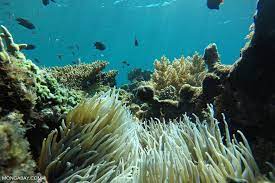Scientists who have compiled the latest report on the state of the world’s life-support systems, say that Industrial civilisation is close to breaching a seventh planetary boundary, and may already have crossed it.
“Ocean acidification is approaching a critical threshold”, particularly in higher-latitude regions, says the latest report on planetary boundaries. “The growing acidification poses an increasing threat to marine ecosystems.”
The report, from the Potsdam Institute for Climate Impact Research (PIK), builds on years of research showing there are nine systems and processes – the planetary boundaries – that contribute to the stability of the planet’s life-support functions.
Thresholds beyond which they can no longer properly function have already been breached in six. Climate change, the introduction of novel entities, change in biosphere integrity and modification of biogeochemical flows are judged to be in high-risk zones, while planetary boundaries are also transgressed in land system change and freshwater change but to a lesser extent. All have worsened, according to the data.
Read also: Priest speaks of ‘painful’ treatment by church over her climate protests
Stratospheric ozone depletion has remained stable, however, and there has been a slight improvement in atmospheric aerosol loading, the research says.
At a briefing outlining the findings, Levke Caesar, a climate physicist at PIK and co-author of the report, said there were two reasons the levels of ocean acidification were concerning.
“One is [that] the indicator for ocean acidification, which is the current aragonite separation state, while still being in the safe operating space, is approaching the threshold of transgressing the safe boundary,” Caesar said.
“The second is that there are actually several new studies that were published over the last years that indicate that even these current conditions may already be problematic for a variety of marine organisms, suggesting a need [to] re-evaluate which levels can actually be called safe.”
Ocean acidification was getting worse globally, with the effects most pronounced in the Southern Ocean and the Arctic Ocean, she added.
Ocean acidification is the phenomenon of increasing acidity (decreasing pH) in ocean water due to the absorption of atmospheric CO2. The process not only harms calcifying organisms, potentially leading to food web breakdown, but also reduces the ocean’s efficiency in acting as a vital carbon sink.
Story was adapted from the Guardian.
